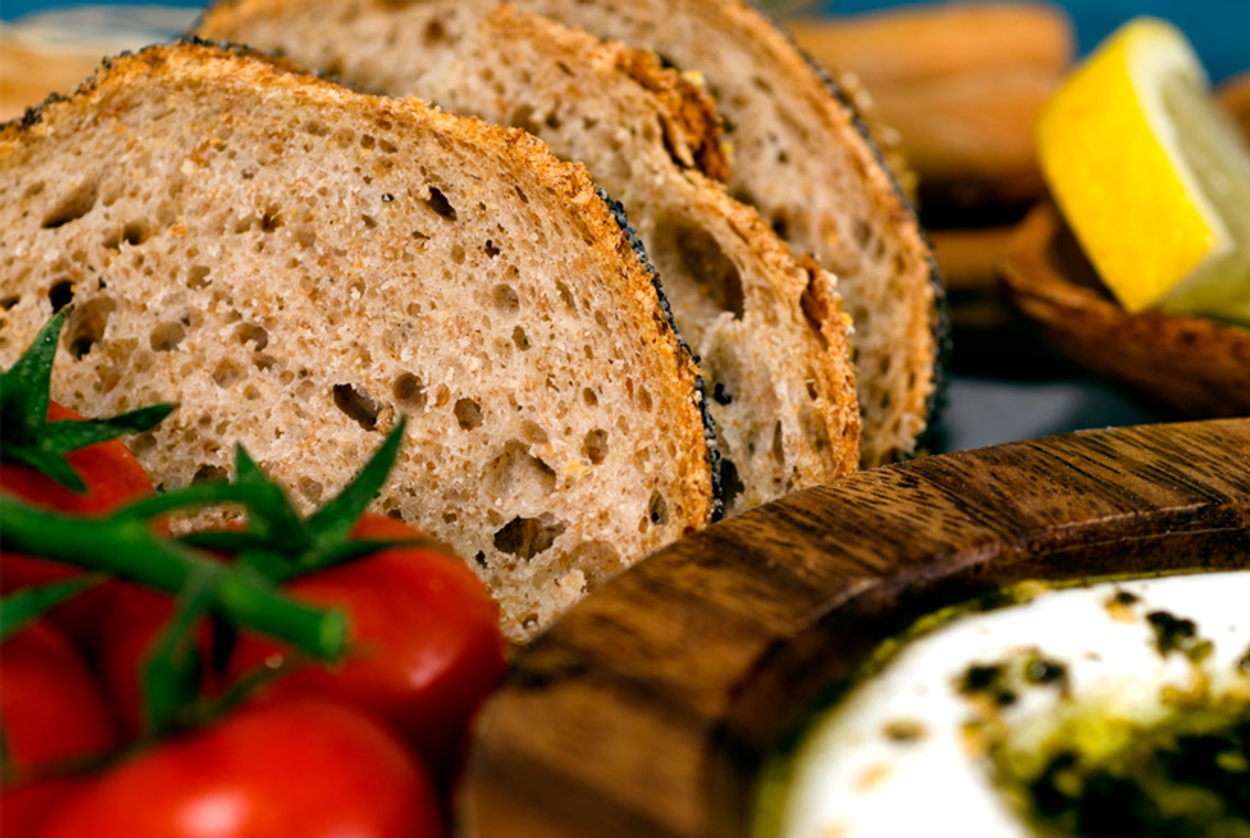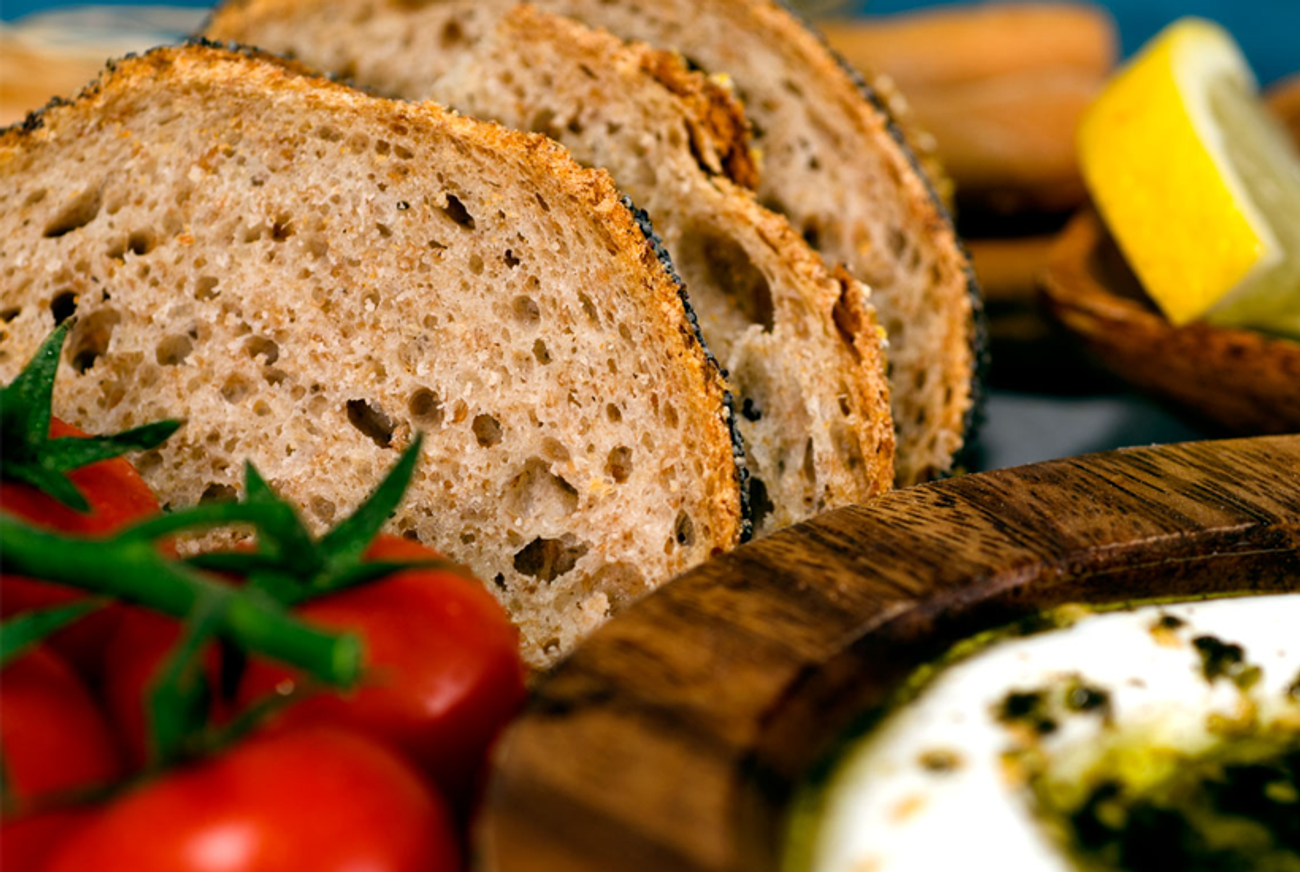Bread Comes Alive in the Negev Desert
Hadas Meir found her spiritual calling as a baker. Now she hosts workshops about Judaism and bread.




Seven years ago, Hadas Meir was living in Tel Aviv, with a demanding full-time career in marketing. Today she lives in the desert, in the remote Negev town of Mitzpe Ramon, and bakes bread.
What makes a 40-year-old single mom with a 10-year old daughter leave the big city and move to the desert? “What brought me to Mitzpe Ramon was the need to make a change in my life, the need to let more spirituality into my life,” Meir explained. “I was doing very well financially but I was working like crazy and felt that I needed to be true to my soul. I chose Mitzpe Ramon because it seemed like the most delicate place in the country. It’s far away from any industry, there isn’t any of the violent consumerism that we have in the big cities or the agriculture that we have in moshavim. For me it felt like a quiet place full of promise.”
In her new home far from Tel Aviv and her old job, Meir said she “suddenly had a lot of free time to start doing what I love.”
“I started to bake, which is something I never did before, and that turned out to be the thing I was supposed to do. Everyone loved the bread I baked; I felt like it was blessed,” she said. “My love for the desert and my falling in love with bread created a small, local bread miracle.”
For Meir, baking is a spiritual thing. “I think bread is a blessed food,” she told me. “It is the most moving interpretation of combining matter and spirit. Even physically, bread is spiritual in essence. There is a mass of dough which is 100 percent matter, and then air enters it”—in Hebrew, the word for wind is the same as the word for spirit—“and makes it rise. The spirituality, the magic and the beauty of bread is what I try to show other people.”
For the first four years after she moved to Mitzpe Ramon, Meir baked and sold bread from her home. Then, three and a half years ago, she opened Lasha—Baking in the Desert (lasha means “she kneads”), a bakery and shop where she also hosts various courses, workshops, and events about bread. “I see this place as a center for the bread experience,” Meir told me on a recent Sunday, as we sat in her bakery next to a plate of homemade rolls, artisan sheep’s-milk cheese, and sun-dried tomato spread.
Meir teaches bread-baking courses, but the events at Lasha go far beyond the usual instructional workshop. She hosted a kids’ day where they read stories about baking; she held bread-and-wine events together with a local winery; and sometimes she holds field workshops in the desert, in which the students make their own dough outside and bake their bread on an open fire in a special Potjiekos bread-baking dish. “In the field workshops you really feel the desert,” she said with pride. “When sitting inside you can easily forget that you’re in the desert, but when baking bread outside, the desert becomes an active ingredient in the baking, which is very moving. All the different elements—earth, wind, water, and fire—come into play, and at the end of the workshop we have a meal outside, and the bread is the key component of that meal.” Meir’s next workshop is a two-day field workshop, including sleeping outside in the desert, at the beginning of February.
Meir enthusiastically talks about the connection between bread and Judaism: “The Jewish people have a long history with bread, ever since God said to Adam in the Garden of Eden, right after he sinned: ‘Beze’at apecha tochal lechem,’ meaning ‘By the sweat of your brow you will eat your bread.’ So, bread was mentioned from the very beginning and it has continuously been mentioned all through the Bible, always with a lesson and a deep meaning attached to it.”
Drawing on the religious significance of baking, Meir holds special workshops for bat mitzvah trips; these sessions include the experience of Hafrashat Challah. “The Jewish woman has only three mitzvot to perform, and one of them is Hafrashat Challah,” she explained. “The Jewish people first became obligated to perform the mitzvah of separating challah when they entered the Land of Israel, so this is a mitzvah that is closely connected to the earth, to the Land of Israel. This is a ceremony in which whenever you bake bread you have to set aside a portion of the dough. Traditionally this portion of dough was given to the kohanim. Today it is burned or disposed of. It’s a very moving ceremony. Baking bread is the most basic and material act and when doing Hafrashat Challah you suddenly stop and relate to the spirit.”
Meir, who says she is “very connected to Judaism and the Torah” but “not observant,” notes that the way she performs Hafrashat Challah with her bat mitzvah girls is different from the way a rabbanit would. “It’s a very special rite of passage for a 12-year-old girl, and I take it to an experiential place, with the smell of the baking, the taste, the family and with music and candlelight,” said Meir. “I don’t perceive it like an obligation but like an empowering experience. In Judaism the woman is responsible for the nourishment of her children and her family, on all levels—physical and spiritual—and I find that thought very empowering.”
***
When I asked her about special breads that only she makes, she mentioned a few but insisted that it’s not really important. “I invent different kind of breads when I’m bored,” she said. “For instance, I make spelt bread with coconut flakes or whole grain bread with sage and Kalamata olives, but I don’t want to be known for my inventiveness; that’s not my thing. To me, basic bread is the most delicious thing and my bread isn’t like anyone else’s. Baking bread is not about the recipe. Two people can bake the same kind of bread, according to the same recipe, and the taste will be completely different. Bread is alive. The finished product may be an inanimate object, but until it gets there it’s alive. It absorbs the frequency of everything around it. The human factor is very dominant when it comes to baking bread, and in my bread you can feel me and you can feel the desert.”
Meir’s views about bread come through loud and clear in her workshops. Ezry Keydar, owner of the Desert Land Adventure Tours sightseeing tour agency in Mitzpe Ramon, attended one of Meir’s courses. “It was very interesting, and the main thing I learned is that bread baking is a creative field,” he told me on the phone. “Usually people treat baking as an exact science, like if you don’t follow the recipe exactly or aren’t accurate with the quantities, everything is ruined. Hadas taught me that when baking bread you can try things and make mistakes and find your own way and invent your own inventions. It is much more open and diverse and creative than following a recipe.”
Tirza Yalon Kolton, who owns an art gallery in Mitzpe Ramon, also feels she got more out of one of Meir’s courses than the basic knowledge of how to bake bread. “It’s a course in the love of bread, and it was amazing,” Kolton said. “Hadas’s motto is that bread isn’t baked because we want to bake it, it’s baked because the materials want to become bread. When you put together the ingredients they turn into bread themselves, like a living organism. I took the course two years ago and I still bake at home. It was a very special and unique experience that lives on in my soul.”
When I asked Meir if she sees Lasha as part of the bigger trend of small boutique bakeries opening across Israel, she said that instead she sees herself as part of a much wider artisanal movement, which manifests itself in many different fields. “Industry and corporations have done more damage than good but they conquered everything and now we have to fight to take it back,” she said. “I see what I do as part of a wave of taking things back into our hands, of small manufacturing. When you eat something that has been made by a small manufacturer, with love and intention, it is always better than mass-produced food. That’s what I’m into and what I believe in. That’s what I try to teach in my courses. I believe people should bake their own bread instead of feeding their kids with the garbage that’s out there. Baking bread for your kids is the easiest thing in the world—raising them is the hard part—and people don’t realize that. That’s the message I’m trying to convey.”
***
Like this article? Sign up for our Daily Digest to get Tablet Magazine’s new content in your inbox each morning.
Dana Kessler has written for Maariv, Haaretz, Yediot Aharonot, and other Israeli publications. She is based in Tel Aviv.
Dana Kessler has written for Maariv, Haaretz, Yediot Aharonot, and other Israeli publications. She is based in Tel Aviv.